On Aug. 22, Spring Valley hosted RNE in the annual Sword vs. Saber rivalry football game. The game was close, even going into overtime, but for some, football seemed to be the least of their worries. Not long after the game, spectators took to the Nextdoor app to express concerns about the maturity level of RNE’s majorette dance team: Eloquent Ivory. Within the thread of messages that has since been deleted, people posted multiple ill-advised comments about the dance team, in my opinion, not to offer constructive criticism, but rather to degrade.
One user stated that the dancers were “hardly dressed,” and another wrote, “RNE wore the lingerie.” While personal attacks on one’s attire are not appropriate, that wasn’t even the worst thing these critics had to say. Some users went as far as to attack the parents of the dancers, saying, “Come on, parents, stop this unhealthy mess.” The same user, when talking to a user associated with Spring Valley’s band who said “my child … did NOT dress or dance this way,” went on to write “Good for you [for] teaching your daughter great values.” In addition to uninformed concerns, some also complained about the choreography, saying, “I would not want my daughter flaunting all of her body like those girls.” One of the final comments was about the dance team instructor, Coach Heaven Howard: “The instructor of this dancing should rethink the performance.”
I don’t have to explain why many of these comments are in poor taste, and some are just blatantly disrespectful. However, I will explain how these messages point to a larger issue: racial and gender bias. Expressing concern is never an issue, although it does bother me that this issue was brought to a neighborhood app. Bringing true awareness is not limiting an audience to a post you want to bring upon change. By making this a neighborhood post, the user limited parents and anyone not in the neighborhood from commenting and educating. This decision felt like an attempt to silence and hide the facts from those who are uneducated. When making comments regarding something you are not educated about, it’s important to note the cultural difference. Respecting culture is huge in today’s modern age, where hate thrives.
Spring Valley’s marching band is a corps-style band, which is a style most commonly seen at predominantly white universities. Corps-style bands are more traditional when it comes to music, using mainly classical, jazz, and contemporary music. The majority of corps-style bands also focus on telling a full story through the field show, normally with props and custom-made costumes. Corps-style bands also do low-to-the-ground marching.
On the other hand, RNE’s band is HBCU style, which is seen at predominantly black universities. HBCU-style bands are known for having a more modern take on band. They play R&B and hip-hop music. Most times, there are no props because the marches themselves are the visuals. HBCU bands also perform high-step marching (the creation of a 90° angle from your body to leg). While the majority of schools are corps style, there is still no right way to do band, and therefore, all artistic versions of it should be accepted. As an HBCU-style band, similar to colleges, we have majorette dancers who dance with the band in the stands and during the field show. As to uniforms, majorette dancers have a more distinct look than other styles of dance.
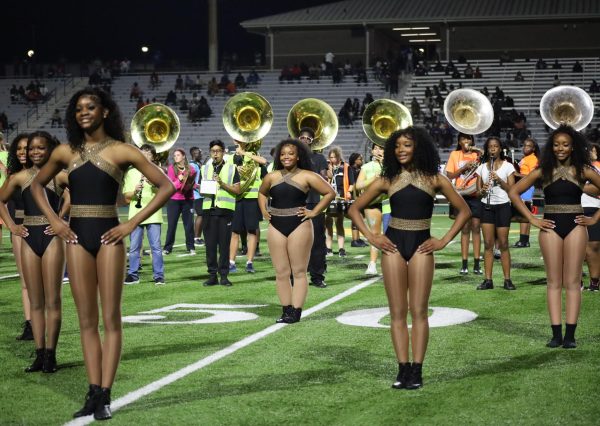
At this particular game, our dancers wore leotards with only legs and arms showing. Leotards. A quick and simple Google search would tell you “leotards are appropriate and are standard attire for dance because their snug, yet flexible, fit allows for a full range of motion while allowing instructors to see the dancer’s technique and body lines clearly.” Calling leotards “lingerie” purposefully sexualizes high school children, which the users later complained about. Also, the comment is simply ignorant and a shot at any and every dancer who has ever worn a leotard. We should not have to simplify a costume to make an adult feel good about a uniform that they are not wearing. The decision to comment on RNE’s dancers was very disrespectful because Spring Valley’s dancers had on tutus and also had their legs and arms showing. This points to clear bias.
Another reason I find the complaint biased is that multiple male students sat shirtless in Spring Valley’s student section, with nothing but paint on their chests. Despite the shirtless students, not one comment mentioned how inappropriate it was. Did everyone forget? Or is it okay because they have XY chromosomes?
Mentioning the parents of the dancers was uncalled for and extremely classless. Why must parents face criticism for allowing their daughters to dance in a way they deem appropriate? Implying that the parents of the dancers don’t teach their daughters “great values” dismisses the countless hours those parents spend teaching their daughters the way of life. Parents should never be made to feel like they are not enough simply because you disagree with a decision they have made. It was especially disheartening to see other parents join in on the hatefulness despite knowing how hard parenting can be. Wearing a leotard is not an indicator of good or bad values, and we as imperfect humans should not judge it like it is. Many would argue that humiliating children, coaches, and parents does not exactly show “great values” either.
Regarding choreography, to say that the dancers were “flaunting” their bodies forces me to question what people see when they see majorettes. Why are they seeing “flaunting” when all they’re doing is dancing? Majorette is a more explosive, mature style of dance, but in no way, shape or form is it meant to show off high school girls’ bodies; indicating that it is, is disgusting. Majorette originated from European military traditions of baton twirling, “Dansmarietjes.” It became much more popular when HBCU teams started dancing without the batons. The first HBCU majorette performance was in 1968 when Alcorn State University’s Golden Girls performed at the Orange Blossom Classic without batons. Being that majorettes originated from Europe, the majority of participants were European. Now that the culture has been altered, most dancers are black. Given that majorette combines many styles of dance(hip-hop, jazz, some ballet), it has become more mainstream in recent years. Not wanting your child to participate in something is understandable. I personally would not want my child to participate in the unnecessary tearing down of individuals. Another major issue comes in when we consider the fact that users did not take the time to contact our dance coach directly or even simply educate themselves with a quick Google search. Instead, users decided the best thing would be “calling the superintendent and expressing our disgust!” Threatening to go to a higher power about something you did not even remotely try to understand is absurd.
Understanding a new concept can and will take time, but actually learning and respecting our differences would greatly help. Even if you find it distasteful, it is still imperative to respect it, especially since we are talking about 13- to 17-year-old students. If going to the superintendent was the solution, why post it anyway? Just so more people could jump on the hate train? This personal attack on the dancers is especially hypocritical. The users were discussing how the dancers should not be dancing a certain way because of age appropriateness. However, nobody stepped in and told the users to stop portraying dancers in a negative light. They are still children, regardless of your feelings. Or does that factor only matter when you can use it to your advantage? Within today’s world, we are starting to see a shift, more acceptance around the world; posts like this make it feel like the past is still amongst us. One thing we can learn from this situation is to respect other cultures to the best of your ability and think before you speak.



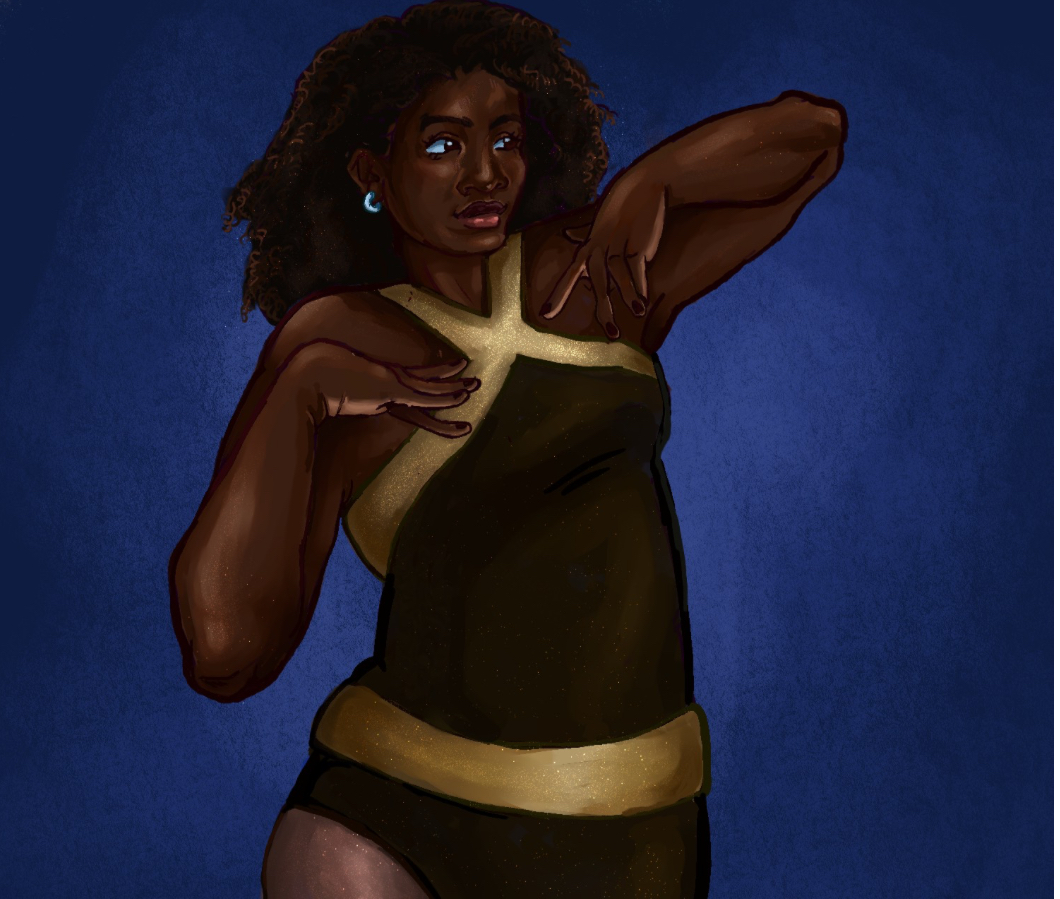
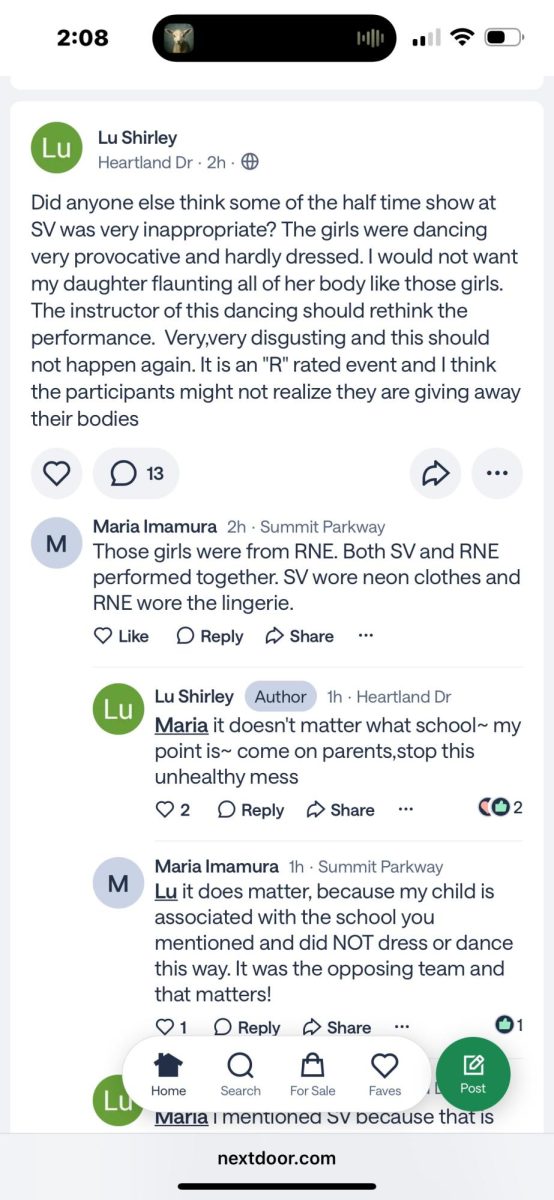




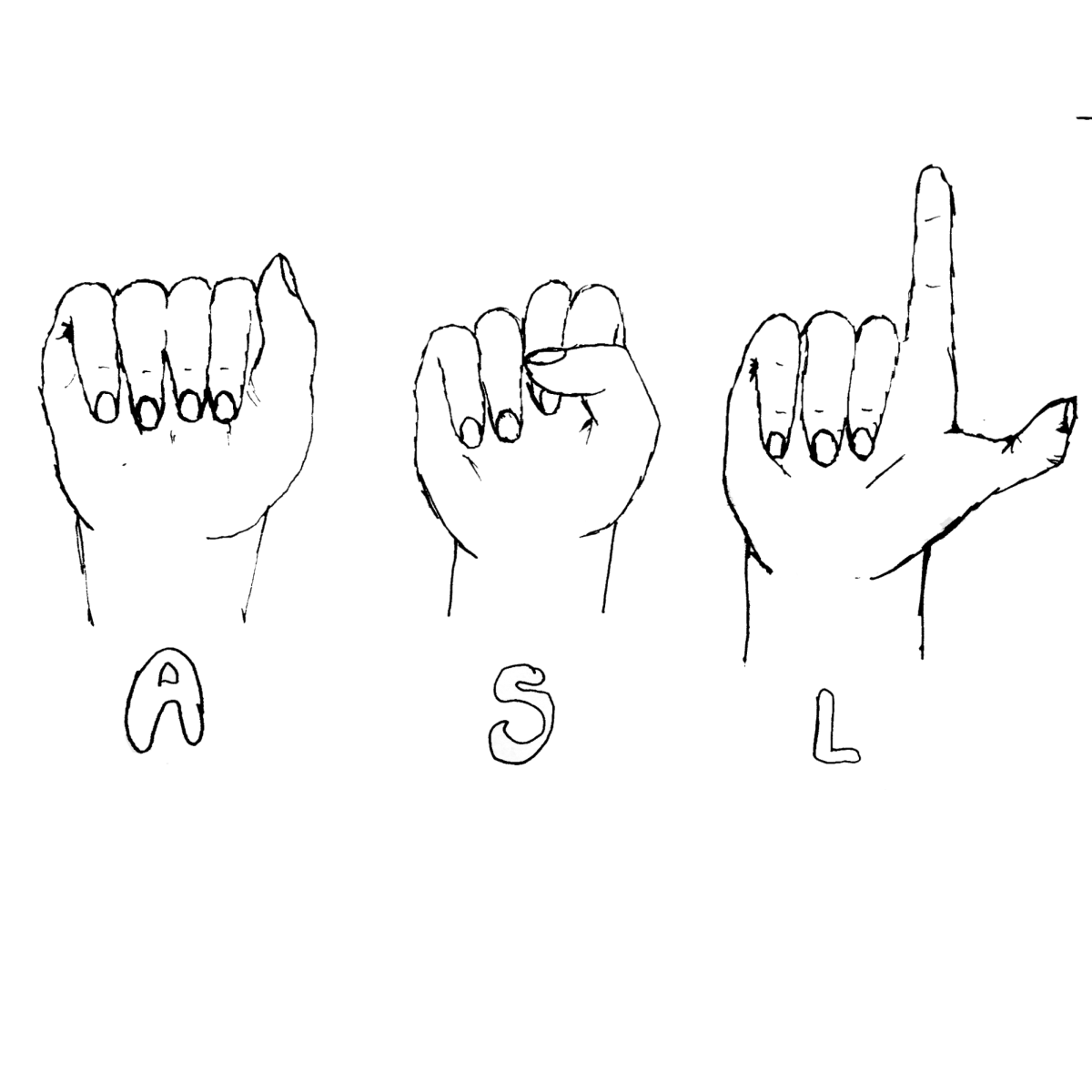
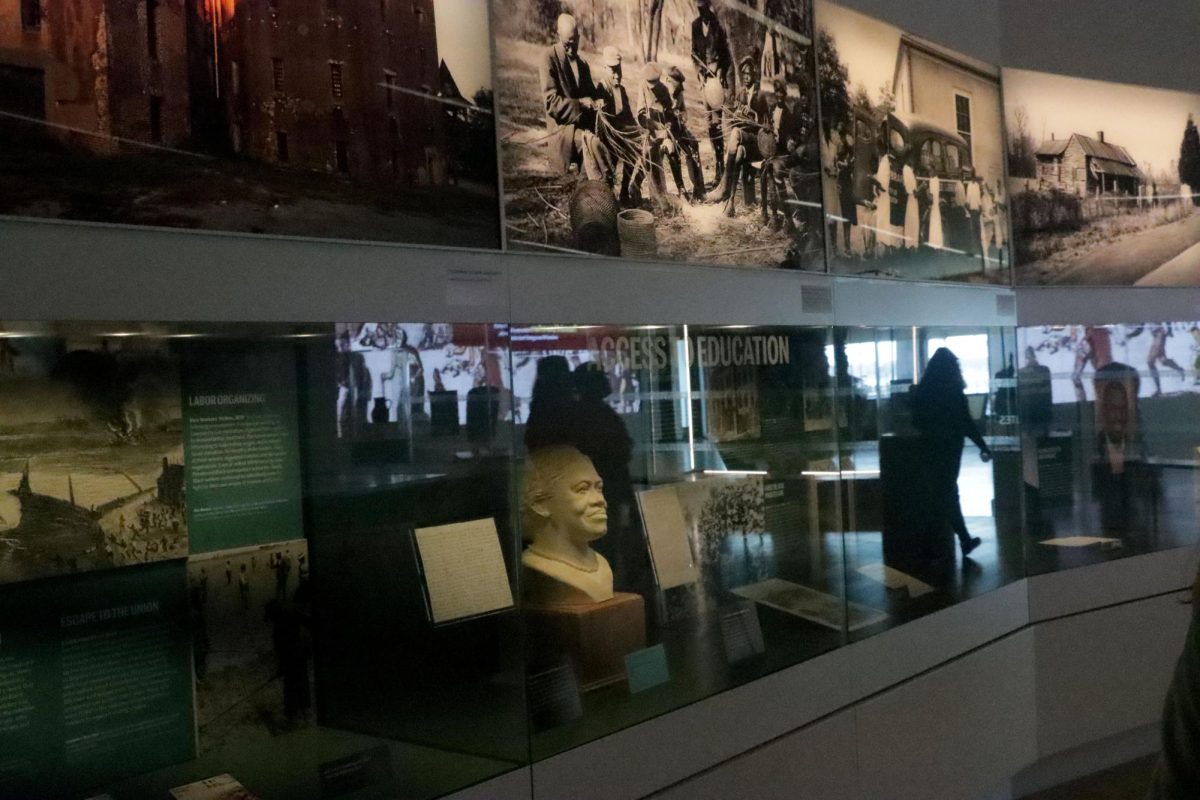

Pamela Williams • Sep 16, 2025 at 4:01 PM
Thank you, Markell, for your commentary. Many people feel emboldened to share comments online that they would reconsider saying in person. Unfortunately, the Nextdoor app is often misused as a venting platform rather than a means to connect and build community with others. I appreciate your insight and thoughtful observations on this subject.